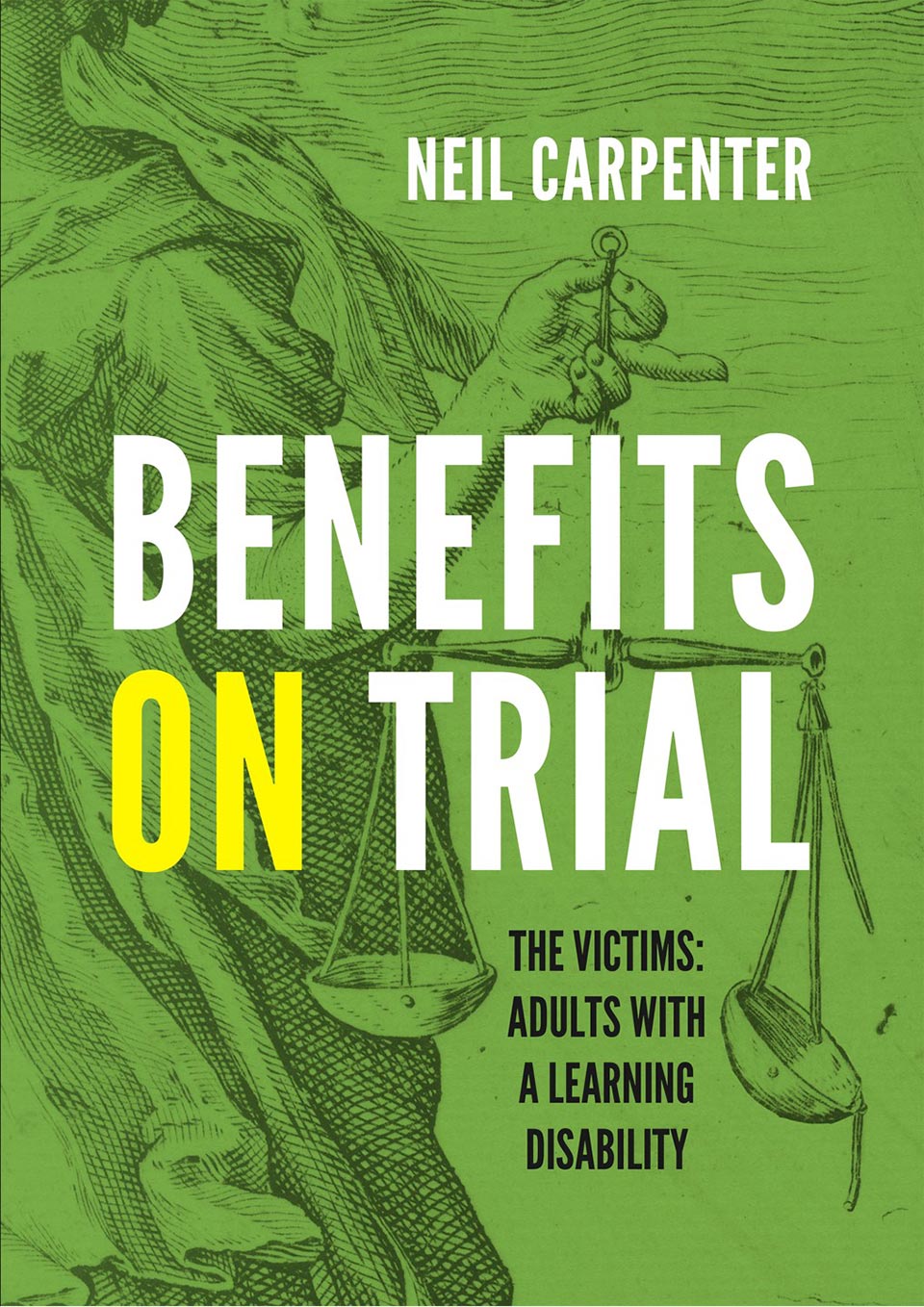Simon Jarrett – 14 October 2022
The mind-boggling, exhausting struggles of six people against a benefits system that seems designed to obstruct them at every turn are followed in this disturbing book, says Simon Jarrett

Benefits on Trial by Neil Carpenter
Neil Carpenter, an advocate who supports people in their battles with the benefits system, has returned to the themes of his 2018 book Austerity’s Victims with this account of a group of people with learning disabilities in Cornwall who find themselves at the mercy of the Department of Work and Pensions (DWP).
In Benefits on Trial, we follow the mind-boggling, exhausting struggles of six people against a system seemingly designed to obstruct them at every turn.
Often and shamefully, after long battles during which people can be deprived of their benefits for more than a year, the DWP will suddenly make offers of payment shortly before a tribunal hearing.
The sole purpose of this is to prevent their numerous inaccuracies, inefficiencies, blatant falsehoods and absurd decisions from being aired in public.
If cases do reach tribunal, DWP decisions are often overturned by the judge within minutes or even before anyone sets foot in the courtroom. People get their entitlements but end up exhausted and mentally broken by the battle.
This is the impact of the government department designed to support the poorest in society. It is, at its heart, a system that abuses those it is meant to serve.
People with learning disabilities are, inevitably, among those who suffer most. The DWP requires them to read complicated letters, make phone calls involving waits of over 40 minutes to get through, complete 33-page forms within tight deadlines and attend assessment meetings involving lengthy travel where they face a barrage of difficult questions.
If they trip up at any point during what Carpenter calls an “obstacle course”, they face losing their benefits altogether – despite their obvious entitlement to them.
In his conclusion, Carpenter analyses in detail the shocking inadequacies of the system.
In their initial assessments, all but one of the people whose cases he describes were awarded no points at all for their needs in relation to daily living and mobility needs. By tribunal stage, every one of them had been awarded enough points to qualify easily for the benefits they were claiming. One gained an astonishing 35 points.
For a medical professional to have awarded no points to this person in their initial assessment was not an unfortunate error – it was a casual, callous and deliberate attempt to bully a person seen as weak out of their entitlement and out of the support system altogether. Carpenter describes this as “a cynical pattern of injustice”.
Carpenter is a gifted writer (and clearly a powerful advocate) and describes these stories of injustice in a compelling and moving way. It is not possible to read this book without feeling real anger on behalf of those who are abused by this system.
The question remains – what is to be done? The author lists a helpful series of issues that the DWP must address, ranging from better-quality assessors to a change in the attritional culture that grinds people down until they lose the will to fight.
However, how can change happen in the face of what seems to be such an intractable problem and a weighted system? We are all angry about it, but online activists sharing their anger with other online activists will have little effect.
There is a momentum building for a new nationwide strategy on learning disability. A critical component of any new strategy must be adaptation and adjustments to the benefits system and significant changes in the DWP’s approach, all of it legally enforceable.
Only then will this nightmarish statutory abuse of people with learning disabilities begin to shift. Neil Carpenter reminds us why this is such an urgent priority.
Benefits on Trial by Neil Carpenter is available on Amazon for £2.83




